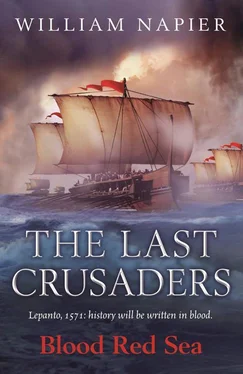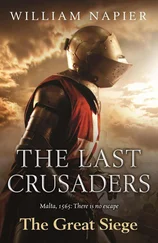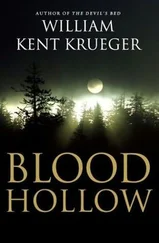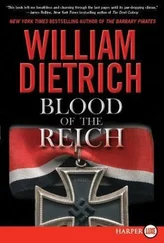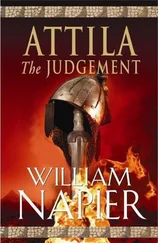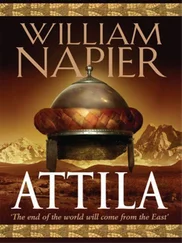William Napier - Blood Red Sea
Здесь есть возможность читать онлайн «William Napier - Blood Red Sea» весь текст электронной книги совершенно бесплатно (целиком полную версию без сокращений). В некоторых случаях можно слушать аудио, скачать через торрент в формате fb2 и присутствует краткое содержание. Жанр: Исторические приключения, на английском языке. Описание произведения, (предисловие) а так же отзывы посетителей доступны на портале библиотеки ЛибКат.
- Название:Blood Red Sea
- Автор:
- Жанр:
- Год:неизвестен
- ISBN:нет данных
- Рейтинг книги:4 / 5. Голосов: 1
-
Избранное:Добавить в избранное
- Отзывы:
-
Ваша оценка:
- 80
- 1
- 2
- 3
- 4
- 5
Blood Red Sea: краткое содержание, описание и аннотация
Предлагаем к чтению аннотацию, описание, краткое содержание или предисловие (зависит от того, что написал сам автор книги «Blood Red Sea»). Если вы не нашли необходимую информацию о книге — напишите в комментариях, мы постараемся отыскать её.
Blood Red Sea — читать онлайн бесплатно полную книгу (весь текст) целиком
Ниже представлен текст книги, разбитый по страницам. Система сохранения места последней прочитанной страницы, позволяет с удобством читать онлайн бесплатно книгу «Blood Red Sea», без необходимости каждый раз заново искать на чём Вы остановились. Поставьте закладку, и сможете в любой момент перейти на страницу, на которой закончили чтение.
Интервал:
Закладка:
His comrades screamed up from below, ‘Skewer the bitch!’
It was eerie to see a woman aboard any fighting ship, and bad luck for all. She must be a witch.
The corsair grinned and slashed at the rigging around this wild woman. She lunged at him, unarmed, ready to tear his eyes out. But her arm was weakened by the wound, the rigging ripped, and she lost her hold. He gave her a final kick in the chest and she fell to the deck below, in the thick of the enemy.
‘La Bailadora!’ cried a Spanish soldier. ‘Break through!’
Then there was a ferocious onslaught, swords clashing, pistols and muskets fired into faces at point-blank range. Even half-pikes seemed too long and unwieldy in that bloody close-quarter mêlée. The Turks were finally driven back and there lay La Bailadora, cut with a thousand sword cuts.
The last of the enemy fled from the ship, some throwing themselves overboard. The Merman turned about, ready again to come to the aid of La Real , breathing vengeance. But in the chaos of the fighting, one of the Turks or corsairs had found his way to the powder store in the bows and lit a fuse. Even as she turned, the powder went up and the bow of the ship, where most of the fighting men crowded, went up in fifty-foot flames, a beacon of fire carrying nothing but bad news.
On the right, Andrea Doria and Kara Hodja were playing a desperate game of manoeuvres. The renegade Dominican priest was moving wide and south into open sea, aiming both to avoid the guns of the galliasses, and to outflank the Christian line altogether. Then he could reform, turn and drive into them from the south, prow guns blazing.
But Andrea Doria had the blood of generations of Genoese sea dogs in his veins. He moved out and matched Kara Hodja’s squadron stroke for stroke, though the corsair ships outnumbered his own two to one. It was a damnable frustration for Doria, still barely a gun fired, while to his left the battle was raging. But he knew it was the most important thing he could do: hold off Kara Hodja, and engage only when safe to do so.
On the Christian left, it was desperate. Here, the Turks under the command of Sulik Pasha had driven forward with the fiercest speed and greatest weight of numbers, determined to break through fast.
Among the Christian ships they saw one painted midnight black, as black as a raven in mourning.
‘What ship is that, do we know?’ demanded Sulik Pasha.
‘That is the ship commanded by the sons of Bragadino of Famagusta,’ said a lieutenant.
Sulik Pasha regarded the sinister black ship in silence. Then he simply raised his arm and ordered the whole line forward at battle speed.
Minutes later, all hell was unleashed.
The Christians were outnumbered on every blazing, blood-slathered deck, yet they fought like demons, and not one single Turkish galley could break through the line.
The decks of the Raven were awash with blood, the stern cabins were aflame, and yet even amid the sheets of flame and the coils of black smoke, men hurled fire pots and grenades, and arquebuses banged out of dense clouds where surely no man could see.
Ambrosio Bragadino reeled backwards as a soldier fell into him, head half blown away. He pushed the corpse aside.
‘Guns overheating, sire!’ called the master gunner.
‘Keep firing on them!’ Bragadino bellowed back. ‘Fire till they crack!’
And so the relentless rhythm went on: guns primed, priming iron driven down the touch-hole to clear it, shake of powder from the horn, gunner’s mate near by with the slow-match in the fork of his linstock, sputter and sparkle, and then boom, the gun reeling back on its carriage, and woe betide any novice standing behind.
Turks crowded up a ladder hooked over the prow of the Raven , yelling for the Prophet, but then they were burned away like leaves in a forest fire. Bragadino had set up a brazen trump for such an assault, and now it roared like a furnace as huge gouts and sheets of superheated flame blazed from its trumpet mouth, a blaze of fire cleansing the sides of the galley as enemy troops poured over. It burned deep into the wooden walls of his own galley too, but he seemed not to care. Let the Raven go down, if she took a thousand Turks with her.
His brother fought ferociously at the stern as more Turkish soldiers swarmed aboard. He was bleeding copiously from a neck wound, face white with blood loss, but quite oblivious.
Some soldiers donned rope-soled shoes so as not to slip in the blood.
‘Sand here!’ cried a voice. ‘More sawdust and sand, for God’s sake!’
The afternoon was now as dark as dusk with cannon fire and powder smoke. Like an untimely nightfall, thick with ashen clouds and streaked with burning meteors, red-hot lava. Nuggets of Greek fire burning even underwater, dancing tongues of flame devouring sails and rigging above. An infernal scene.
‘Fall back, sir!’ cried a Spanish captain. ‘You’ll be hit!’
‘Better hit than not heard!’ returned Bragadino. ‘Press on ’em, men!’
Any signalling between ships was all but impossible, few there could either hear or see beyond their own little world of ship-bound slaughter. Yet through the dense smoke, even as he fought with a sword chipped along its edge like a woodman’s saw, Antonio Bragadino glimpsed the rocky shore of Scropha Point, barely a hundred yards off to larboard. He shouted desperately to his brother. And Ambrosio, knowing the power of the unexpected, sent word as best he could to all captains and rowers to press north towards the shore.
‘We’ll be ripped open, sire!’ cried the captain.
‘So too the Turk,’ said Bragadino.
The chaos on the left was now indescribable, yet it was chaos in part deliberately created by the brothers Bragadino.
‘The devil love chaos,’ muttered one boatswain, peering into the smoke, trying to see any rocks around them, before taking an arquebus ball straight through his forehead.
And then Ambrosio Bragadino at the prow saw a Turkish standard ahead, arising out of the smoke like a castle turret out of an early morning mist, and he knew that below, in that dense smoke, was the command ship of Sulik Pasha.
‘Straight ahead!’ he cried, even thumping his foot on the boards as if the oar slaves below would hear him.
The Raven drove blindly into the smoke, and moments later struck Sulik’s galley astern and carried its rudder clean off. In the choking smoke, every man there was half blinded as well as gasping for clean air, red of eye like rabid dogs. Yet Bragadino still urged them forward into another fight, vaulting across on to the Ottoman galley. Hanging from the stern, he flailed his battered blade at the great silver lantern there and dashed it into the sea. He would slaughter everything he found on that ship. Commander, mariners, soldiers and slaves.
Fighting almost alone at times, cut with a dozen wounds, Bragadino found in a lower cabin four fine hunting falcons and a single shivering greyhound, Sulik’s personal menagerie.
He slaughtered them all.
Sulik Pasha was captured, bound and made to kneel on the ruined deck of the Raven . Somewhere behind in the smoke, Turkish galleys were foundering on the rocks of the Greek shore. So too were Christian galleys. It was madness.
Sulik Pasha began to ask what ransom the Christians might demand for him.
Ambrosio Bragadino kicked him in the mouth. ‘You know whose ship you are now aboard?’
Sulik spat blood, shook his head to clear it, determined to show no fear. ‘I know it. Your father was Bragadino, Governor of Famagusta.’
‘Well then.’ Bragadino raised his sword.
‘It was no doing of mine. You should understand, you should-’
The words were choked off as Bragadino’s sword drove down into the back of his neck and out of his throat.
Читать дальшеИнтервал:
Закладка:
Похожие книги на «Blood Red Sea»
Представляем Вашему вниманию похожие книги на «Blood Red Sea» списком для выбора. Мы отобрали схожую по названию и смыслу литературу в надежде предоставить читателям больше вариантов отыскать новые, интересные, ещё непрочитанные произведения.
Обсуждение, отзывы о книге «Blood Red Sea» и просто собственные мнения читателей. Оставьте ваши комментарии, напишите, что Вы думаете о произведении, его смысле или главных героях. Укажите что конкретно понравилось, а что нет, и почему Вы так считаете.
